The Agency knew that their best asset for selling their wars was Barack Obama -- the same reason so many in the security state were eager to get rid of Donald Trump.
By Glenn Greenwald
November 23, 2020 "Information Clearing House" - "Substack" - The first time I ever wrote about WikiLeaks was back in early 2010, when the group was still largely unknown. What prompted my attention was a small article in The New York Times which began this way:
To the list of the enemies threatening the security of the United States, the Pentagon has added WikiLeaks.org, a tiny online source of information and documents that governments and corporations around the world would prefer to keep secret.
The NYT explained that the Pentagon had prepared a secret 2008 plan in which they plotted how to destroy WikiLeaks, including by purposely leaking to it false documents with the hope that the group would publish the fakes and forever obliterate their credibility — a dastardly scheme which was ironically leaked to WikiLeaks, which promptly posted the document on its website.
Any group that the U.S. security state includes on its “list of enemies” by virtue of publishing its secrets is one that is going to attract my interest, and likely my support. As a result — months before they made international headlines with publication of the Iraq and Afghanistan War Logs and diplomatic cables from Hillary Clinton’s State Department — I immediately investigated everything I could about the group’s founding and mission; interviewed its founder Julian Assange; and urged readers to help support the fledging group, concluding that “one of the last avenues to uncover government and other elite secrets are whistle blowers and organizations that enable them. WikiLeaks is one of the world's most effective such groups, and it's thus no surprise that they're under such sustained attacks.”
The reason for my conclusion was that WikiLeaks had been exposing incriminating secrets of corrupt power centers for years. The technology they pioneered — enabling sources to leak to them troves of documents without anyone, including WikiLeaks itself, knowing the source’s identity — was a major innovation in enabling greater transparency for the world’s most powerful factions.
No Advertising - No Government Grants - No Algorithm - This Is Independent Media
But it was one WikiLeaks document that particularly caught my attention at first: a classified 2010 CIA “Red Cell Memorandum,” named after the highly secretive unit created by Bush/Cheney CIA Director George Tenet in the wake of the 9/11 attack.
What made this document so fascinating, so revealing, is the CIA’s discussion of how to manipulate public opinion to ensure it remains at least tolerant of if not supportive of Endless War and, specifically, the vital role President Obama played for the CIA in packaging and selling U.S. wars around the world. In this classified analysis, one learns a great deal about how the “military industrial complex,” also known as the “Blob” or “Deep State,” reasons; how the Agency exploits humanitarian impulses to ensure continuation of its wars; and what the real function is of the U.S. President when it comes to foreign policy.
What prompted the memo was the CIA’s growing fears that the population of Western Europe — as evidenced by the fall of the Dutch Government driven in large part by the electorate’s anger over involvement in Afghanistan — was rapidly turning against the War on Terror generally and the war in Afghanistan specifically. The CIA was desperate to figure out how to stem the tide of anti-war sentiment growing throughout that region, particularly to shield France and Germany from it, by manipulating public opinion.
The Agency concluded: its best and only asset for doing that was President Obama and his popularity in Western European cities.
The premise of the CIA memo was that the populations of NATO countries participating in the War in Afghanistan did not support that war. What those allied governments and the CIA relied upon — as the above headline notes — was what the agency called “public apathy”: meaning that the war’s “low public salience has allowed French and German leaders to disregard popular opposition and steadily increase their troop contributions to the International Security Assistance Force (ISAF).”
In other words, as long as the public stayed sufficiently inattentive, their democratically leaders were free to ignore their wishes and stay fighting in a war that the citizens of that country opposed. But what concerned the CIA most was that simmering dislike for the war in Western Europe would turn into active, concentrated opposition — as had just happened in Holland — forcing the worst of all outcomes: that the governments fighting with the U.S. in Afghanistan for close to a decade would actually have to pay honor the beliefs of their citizens that the war was not worth it, and pull out, leaving the U.S. to shoulder the burden alone:
Whatever happens, the one thing the CIA cannot not tolerate is having the leaders of allied countries “listening to the voters” (that’s why the CIA has long preferred its “partner” countries be ruled by tyrannies: no need to accommodate bothersome public opinion). But even in western democracies, as long as the population remains sufficiently inattentive, the CIA reasoned, then their anti-war sentiments could be safely ignored.
The problem in 2010 was that there was an increasing awareness in western Europe at how anathema the War in Afghanistan was to their values, how wasteful were the resources expended, and how little any of it had to do with the quality of their own lives. That public opinion problem — or, one might say, the nuisance of democracy — was where, as usual, the CIA came in.
To solve the problem of growing anti-war sentiment in Western Europe, the agency devised two primary solutions: 1) exploit the plight of Afghan women to tug on the heartstrings of the Germans and French and try to persuade them — particularly European females — that the war in Afghanistan was really some sort of humanitarian project to help people, not a geo-strategic effort to control the region and its resources; and 2) use the popularity among Europeans of President Obama, now a Nobel Peace Prize winner, to put a pretty, sophisticated, cosmopolitan face on the war in place of the hardened Evangelical Texan swagger that George W. Bush represented.
But none of this would have worked, in the CIA’s estimation, without having a President who could effectively use his popularity abroad to sell the war not as a barbaric act of endless aggression but as a humanitarian gesture that — like the President himself — was benevolent, noble, and kind. As a result of their positive views of Obama, the agency concluded, the French and Germans would not only “be receptive to [Obama’s] direct affirmation of their importance to the [Afghanistan] mission” — that would be the positive reinforcement — but would also be “sensitive to [his] direct expressions of disappointment in allies who do not help.”
In other words, Obama was like a kind but righteous father whose nobility you believed in even when it came to bombing villages and shooting up schoolyards, and whose moral disappointment (you’re not living up to your duties as an ally) you were eager to avoid. Polling data thus showed that when Europeans were reminded that Obama supported the war in Afghanistan, support increased significantly:
It is hard to overstate how revealing this document is. Just months before the CIA heralded Obama’s unique ability to sell the war and ensure its continuation, the Nobel Peace Prize Committee awarded Obama its highest honor for what it called “his extraordinary efforts to strengthen international diplomacy and cooperation between peoples,” adding: “for 108 years, the Norwegian Nobel Committee has sought to stimulate precisely that international policy and those attitudes for which Obama is now the world’s leading spokesman.”
Yet the CIA, as it so often does, knew the hidden truth: that Obama’s most important value was in prettifying, marketing and prolonging wars, not ending them. They saw him for what U.S. Presidents really are: instruments to create a brand and image about the U.S. role in the world that can be effectively peddled to both the domestic population in the U.S. and then on the global stage, and specifically to pretend that endless barbaric U.S. wars are really humanitarian projects benevolently designed to help people — the pretext used to justify every war by every country in history.
Many have questioned why the CIA would be so vehemently opposed to Donald Trump’s candidacy, and then his presidency. Though he did question many of their most prized pieties — from regime changes wars such as in Syria to the ongoing viability of NATO after the fall of the Soviet Union — and did harshly criticize their intelligence failures (which is what prompted Chuck Schumer’s pre-inauguration warning that they would exact revenge on him for doing so), it’s not as if Trump were some sort of peacenik President. He made good on his campaign promise to escalate bombing campaigns in the name of fighting terrorism with fewer constraints than before.
But one major reason for the contempt harbored for Trump among security state operatives is his inability and unwillingness to prettify barbaric U.S. actions and to pretend that the U.S. is something other than it is. Recall the fury and rage provoked when, in response to a question by Fox News’ Bill O’Reilly about Putin’s use of violence against journalists and others, Trump responded: "There are a lot of killers. You think our country's so innocent?"
The rage from that comment was obviously not driven by any doubts about the truth of Trump’s statement. No sentient person would recognize it as anything other than true. The anger was due to the fact that presidents are not supposed to tell the truth about the U.S. and what it does in the world (just as Presidents are supposed to pretend they hate despots even as they support them in every conceivable way). As the 2010 CIA memo reflects, useful presidents are those, like Obama, skilled at deceiving the world and propagandizing them to view U.S. aggression as benign, so as to allow even democratically elected leaders to act in contradiction to public opinion when doing so suits U.S. interests.
As I wrote in 2017 when the foreign policy community and pundit class feigned anger over Trump’s embrace of the Egyptian dictator Abdel Fattah el-Sisi, as if support for tyranny was a violation of U.S. values rather than a staple of post-World-War-II U.S. policy:
What Trump is achieving by opening the White House doors to Sisi is not ushering in a new policy but rather clarifying and illuminating a very old one. This Trumpian effect — unmasking in all its naked ugliness what D.C. mavens prefer to keep hidden — is visible in multiple other areas…..
That’s the reason so many in Washington — who never met a pro-U.S. dictator they weren’t willing to arm and fund — are so upset by all this. Sisi isn’t someone you invite over to your house for dinner; he’s someone you send money and weapons to in secret after you give your pretty speeches in front of American flags about human rights and freedom. What Trump is violating is not any Washington principles or ethics but Washington propaganda tactics.
It’s not just Trump who infuriated powerful U.S. actors by revealing the true face of the U.S. to the world. It’s also Julian Assange who did so, by founding an organization that published documents like this one that revealed such vital truths.
For that exposure, the CIA relentlessly attacked Trump starting from before he was even elected, and for the same reason, Assange is sitting in a British prison on espionage charges from the U.S. Department of Justice. Few things infuriate U.S. foreign policy elites more than those who, unwittingly or otherwise, show their true face to the world.
http://www.informationclearinghouse.info/55936.htm



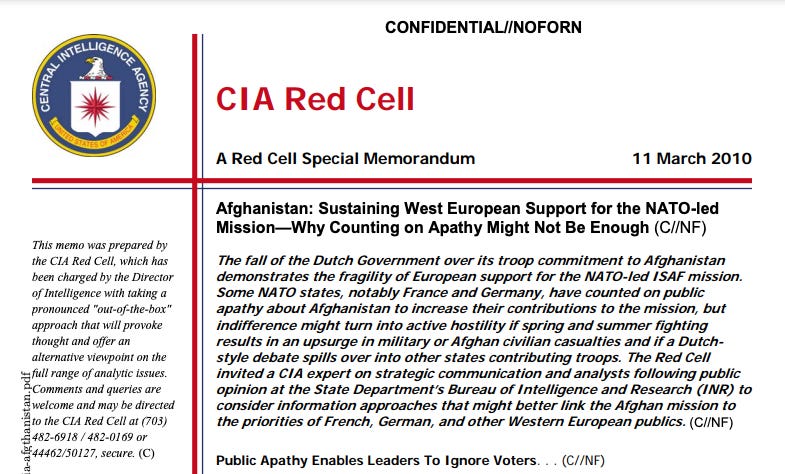
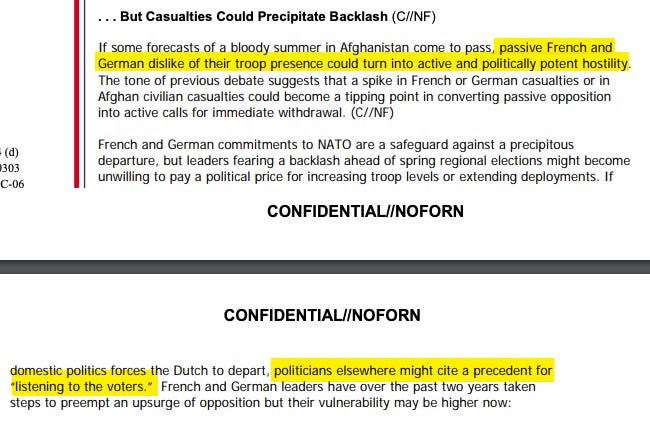
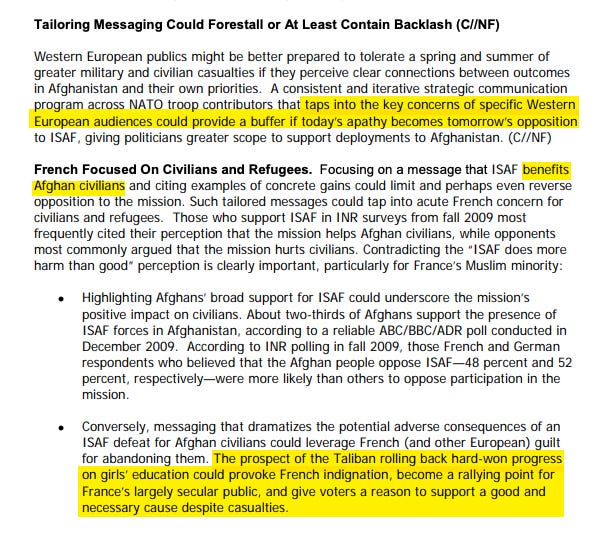
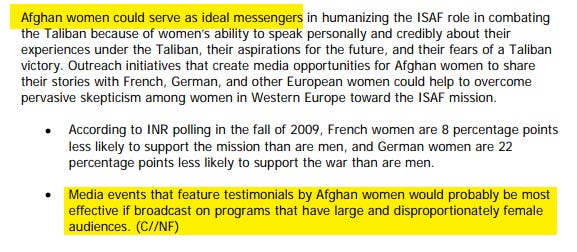
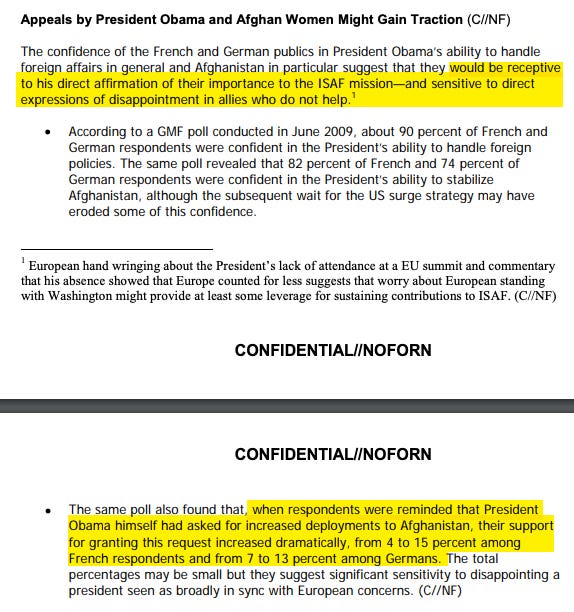
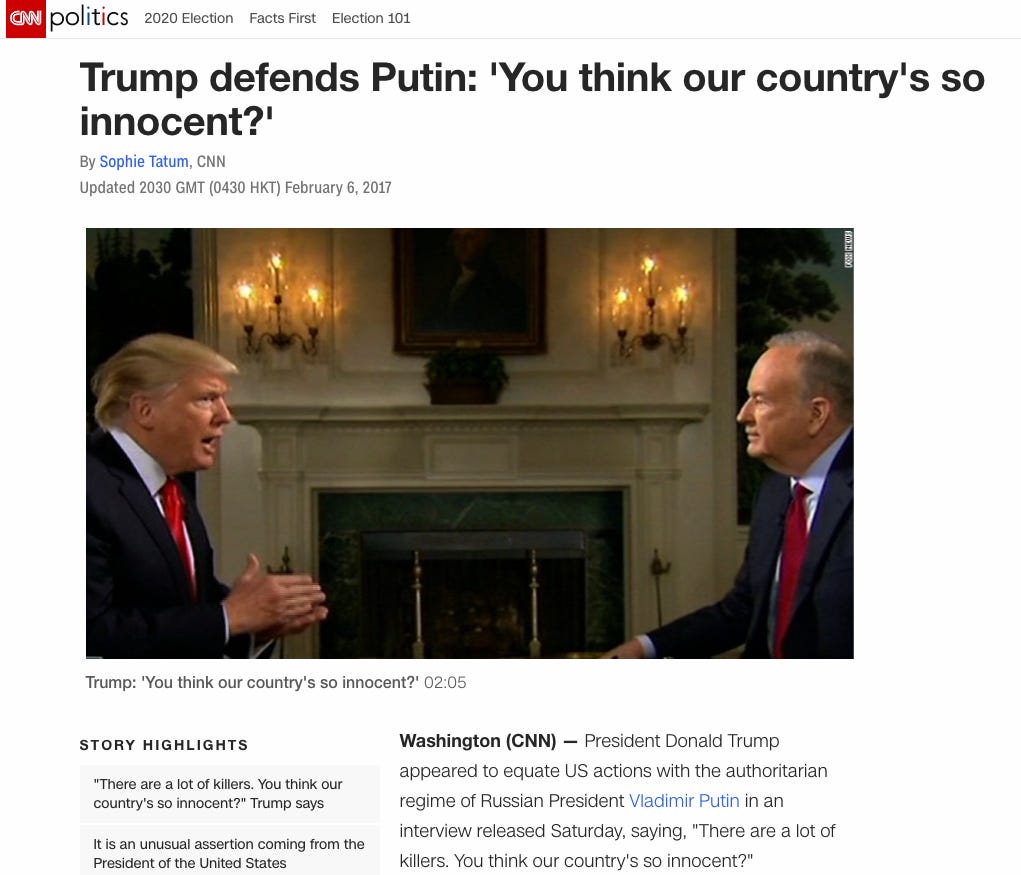
















No comments:
Post a Comment